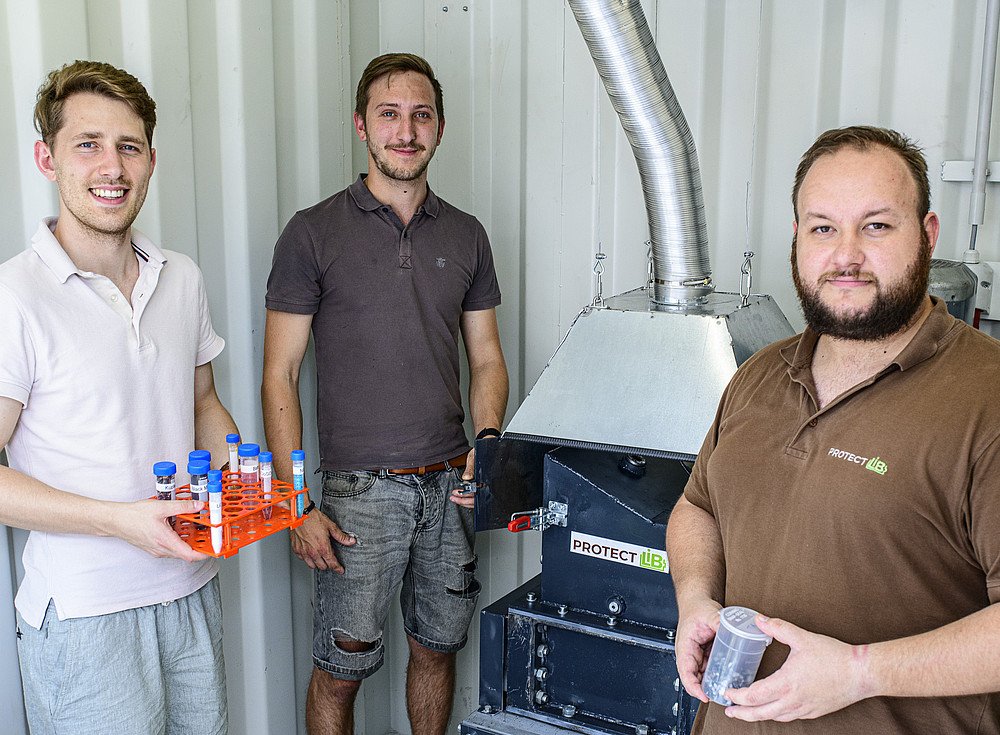Battery recycling project spins off from University of Graz
The innovation is intended to enable the cost-effective and environmentally friendly recycling of valuable raw materials directly on-site. The first prototype has been completed and is located on the university campus, ready for use. Currently, the focus of the project will lie on automotive batteries, and mobile phone or laptop batteries “are initially excluded,” implying that the scope of the project may be broadened at a later date.
The project was launched by Jürgen Abraham, Tobias Kopp and Chris Pichler who are now working on the solution as part of a spin-off from the University of Graz at the UniCorn start-up incubator under the project ‘ProtectLiB.’ This is where they developed the compact container-sized recycling plant.
“We can separate lithium, cobalt and nickel from the liquid electrolytes. Unlike existing processes, we can do this without heat,’ says Kopp, explaining the added value of her innovation. He claims that this is a huge advantage for customers, as the residual materials are no longer hazardous, and further processing and transport are considerably cheaper. A first customer has also be found “in the south of Graz.” Kopp explains: “Battery prototypes for transport are being developed there. In future, the technology of ProtectLiB will enable the company to recycle these directly on site.”
In a LinkedIn post, the project initiators outlined three takeaways: OEMs produce batteries globally, yet recycling is local, which poses particular challenges, such as the granularity of the specified contents. Additionally, the digital battery passport will only enhance sustainability and circularity if it is done correctly and access privileges are sensibly defined. Finally, the initiators state that it needs to be clarified who is responsible for the accuracy of the gathered data, who has access to it, and for how long.





0 Comments